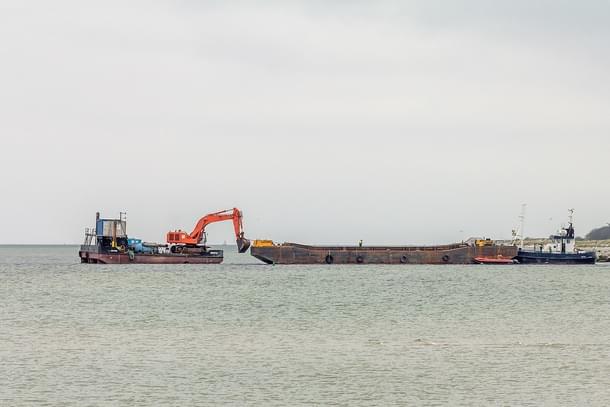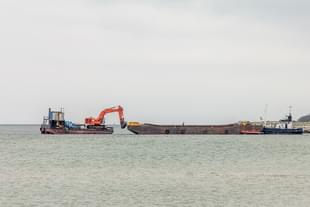Infrastructure
Maharashtra: Material From Seafloor Likely To Be Used To Reclaim 3,600 Acres For Wadhavan Port
India Infrahub
Jan 17, 2023, 01:51 PM | Updated 01:51 PM IST
Save & read from anywhere!
Bookmark stories for easy access on any device or the Swarajya app.


The planned mega container port at Wadhavan, near Dahanu in Palghar district of Maharashtra, is likely to be built with the material dredged from the sea bed near Daman coast.
Around 200 million cubic metres of earth from the ocean floor near Daman could be used to reclaim 3,600 acres of land from the sea to build Wadhavan port.
The Jawaharlal Nehru Port Authority (JNPA) has sought permission for dredging from the union environment ministry.
Though JNPA had planned to use 80 million cubic metres of fragmented rocks from nearby hillocks in Palghar district, it dropped this plan due to various reasons like estimated material requirement for land reclamation being 200 million cubic metres, using terrestrial earth for reclamation in intertidal areas being damaging to marine ecosystems and transporting the required material by road to the port site being expensive.
“It has yet to be studied whether the identified site off the Daman coast is entirely feasible, but we will do the full assessment once the MoEFCC agrees to the amendment in the ToR. Excavating from a marine pit is mentioned as a potential option in our detailed project report,” an official from JNPA told Hindustan Times.
Wadhavan: A Mega Port Near Mumbai
The Wadhavan Port will be located at a distance of 140 km from Mumbai and 150 km from Jawaharlal Nehru Port Trust (JNPT).
Upon completion, the port will catapult India among countries with the top 10 container ports in the world. Jawaharlal Nehru Port Trust (JNPT) and Maharashtra Maritime Board will execute the project jointly. The port is part of the PM Modi led NDA Government's ambitious Sagarmala program.
In Feb 2020, the proposal to create the huge port – on a ‘landlord model’ – was cleared by the Union Cabinet.
Situated in a picturesque coastal tract, the Wadhavan Port has a natural draft of around 20 metres close to the shore, making it ideal to handle modern big container vessels.
The development of Wadhavan Port will enable the call of larger container vessels of 16,000-25,000 TEUs capacity, giving advantages of economies of scale and reducing logistics costs.
The greenfield port at Wadhavan is significant as there is a need for a deep draft port that can accommodate the largest container ships in the world and also cater to the spillover traffic after JNPT’s planned capacity of 10 million TEUs is fully utilised.
The JNPT and Mundra Port, the two largest container ports in India, with a draft of 15 metres and 16 metres, respectively, can handle only mid-size ships, while the world’s largest container ports require a draft of 18-20 metres.




